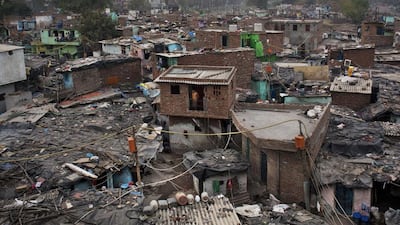Here and there, one is given fleeting glimpses into the impulses of the poor in India. The case of Aruna Shanbaug, the Mumbai nurse who died on Monday after lying in a vegetative state for 42 years, provides a peek into the painful choices poverty forces on the most deprived.
Shanbaug was abandoned by her family, despite having eight siblings. It was the devoted nurses at the King Edward Memorial Hospital in Mumbai who cared for her. At first sight, the family’s behaviour seems brutish. But the choice was stark: do we raise our children or do we spend all our resources on someone who is brain-dead, at the expense of our children?
“We had no means to support her or pay for her hospital expenses. We all abandoned Aruna due to financial constraints,” her elder sister Shyamala said with remarkable honesty.
Indian doctors treating road accident victims are familiar with this kind of abandonment. They see women, for example, whose husbands have been left disabled, picking up their young children and slinking out of the hospital. Faced with the dilemma of feeding their children or looking after an incapacitated husband, they make their choice. They cannot do both.
A newspaper report on a reckless driver careening into labourers sleeping on the street afforded another insight. Asked why he slept on the edge of the pavement, the man said it was because the rush of passing cars provided a breeze in the stifling summer heat.
Then the Salman Khan verdict yielded more information. The Bollywood star was convicted of culpable homicide this month for smashing his car into homeless labourers sleeping on the pavement, killing one and injuring four other men 12 years ago. On the day of the verdict, a reporter went to the village of one of the men who was injured. She asked him how he felt about the verdict. What she wanted was for him to say that he was happy that justice had been done. He did not.
Finally, he answered. “What good is Khan getting justice for me? How will it help me? If he’s in jail, will that feed me and my family?” In short, only compensation would help, not justice. The reporter ploughed on, asking whether his injuries had healed. Yes, he said, “but it sometimes hurts inside.”
His reply revealed two other effects of poverty. The first is an understandable indifference towards moral abstraction.
Yet some intuitive sense made the man hesitate before saying that only money had meaning for him rather than justice. He was evasive, as though knowing that this answer would not be a morally elevated one.
The second was the sly answer about how his insides still hurt sometimes. Here, he was patently lying. When you are poor, you can never miss an opportunity to express hardship to the rich because you might just miss out on something – some offer of help, money, something, anything.
Such is the dehumanising effect of poverty. It can diminish, shrink and lower your consciousness.
Rich Indians accuse poor employees of being devious and failing to show trust. They fail to realise that the dynamic between them is doomed.
Employers of domestic staff will grumble that they would happily have lent money to a maid if she needed it, but why did she steal? That they would have understood her plight if only she had not lied that her father was unwell and she had to leave for the village when in fact it was her boyfriend she was running to.
But telling the truth is rarely an option for many poor workers. They are too vulnerable, too fearful of the consequences – a job lost, a loan refused, disapproval incurred – so it’s safer to dissimulate.
After all, when a maid or driver does tell the truth, how many employers pack them off home to their villages because they don’t wish to pay for, and endure the inconvenience of their illness? Knowing this, the only option for them is to lie as a way of mitigating a very negative outcome.
Their sense tells them that relating all their problems will not endear them to the rich, it will dismay them. They are right, because their problems are limitless and scary. By the time they have mentioned the invalid mother, the disabled child, the jobless brother, the boy who needs a school place and the daughters who need to be married off, many an eye has glazed over. This is too much reality for most people to deal with.
Harsh Mander, an astute commentator on poverty, has written recently of how poverty is a form of social violence. It is also a form of emotional violence. It often warps and twists a person’s thinking, forces them to pretend, simulate and dissemble, and makes them less true to themselves.
Shanbaug’s desertion by her family illustrates how the worlds of the rich and poor in India can never intersect. They are powered by different engines. On the odd occasion when the veil is lifted on the inner life of poor Indians, a world of cruel choices is revealed. Then it comes down again, to everyone’s great relief.
Amrit Dhillon is a freelance journalist in New Delhi

